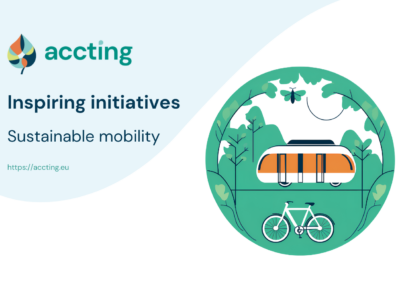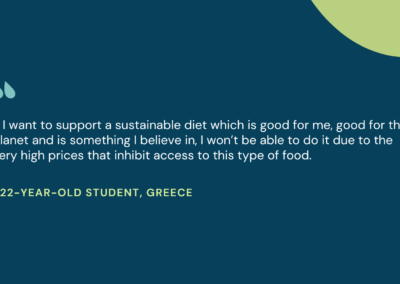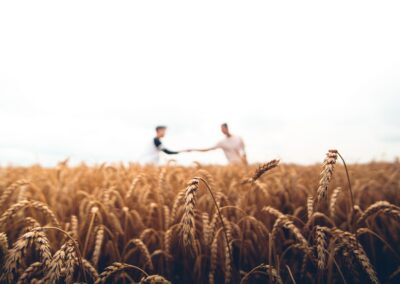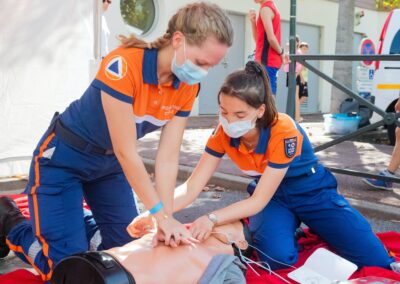TEST Greece page
ACCTING has mapped inspiring bottom-up initiatives in Greece, stemming from groups of people, communities, and organisations in topics related to the project’s eight research lines. These “Better Stories” (Georgis, 2013) aim to inspire by showing positive involvement of society, and more specifically vulnerable groups, in response to climate change.
ACCTING’s research on the impact of Green Deal policy initiatives on behavioural change also includes a collection of 401 interviews with individuals from vulnerable groups. Many of these individual narratives are also have potential for “Better Stories”, to be a source of inspiration and ideas for how to achieve change, in spite of unfavourable conditions and or complexities that make change difficult to imagine.
Inspiring Initiatives

Driving change in crisis
During the Covid-19 pandemic, ALD Automotive, a part of the Societe ... Read More

Transforming Thessaloniki’s Mobility
Thessaloniki is stepping up to become one of Europe’s most sustainable Read More

Driving the future of sustainable transport
The EcoMobility, FREEMOBILITY, and ECO 2 MOBILITY campaigns are ... Read More

Driving change in crisis
During the Covid-19 pandemic, ALD Automotive, a part of the Societe ... Read More

ACCTING Narrative: Economic struggles and access to sustainable food
The impact of climate change and the capacity to mitigate its negative Read More

Connecting people living in urban cities and the ones in agricultural areas
The urban & peri-urban crop Group PERKA is a great example of an ... Read More

Bringing volunteers together for civil protection
FILIOS ZEUS is a recent flagship initiative in civil protection in ... Read More
Better stories from individuals
Our national researchers in Greece interviewed XX individuals, with a focus on the following research lines:
- Intensifying the adoption of EEMs in micro/smaller SMEs
- Improving food security and healthy diets in vulnerable communities, through local production, informed consumption practices and circularity
- What values are associated with Environmentally Sustainable Food consumption as a function of age, gender, vulnerability to the Green deal and country/Culture?
- Transport poverty and sustainable travel: families in socially vulnerable areas
- Post-lockdown sustainable mobilities: centering cycling and walking
Read through a selection of individual Better Stories in Greece:
Food Security
The narratives collected in Greece express the idea that the physical access to food is constrained by limited diversity in terms of choice, when considering stores and restaurants (e.g., lack of vegan food).
In Greece, a story refers to a single mother of two girls from a lower socio-economic background, who grew up in a family of stock farmers and currently lives in Stavroupoli, the west side of Thessaloniki. She has adopted healthy eating habits due to personal beliefs. She is vegetarian and continues to adopt an organic and seasonal eating despite the higher costs and less accessibility:
“I am a single mother of two girls, I live in Thessaloniki and I myself grew up in a family of stock farmers(…). Later one of my daughters saw a documentary about animal farms and decided that she would only eat meat produced by my father because she knew that her grandfather produced meat in a very specific way. Then she also decided to stop eating meat in general when in a trip to Belgrade she encountered a movement against killing animals for meat so she became a vegan (…). However, getting other organic food can be expensive, for instance peanut butter or almond milk are very expensive, so we try to have a budget for that to sustain it. And we also organize the nutritional value of what we get, for instance we eat avocado or I make my own bread once a week and it lasts a week and I make sure I make it with organic ingredients. We also cook burgers out of cauliflower and quinoa that are organic. I have to say that this is very difficult because not many shops support this. They don’t have diversity (…). It’s good to have more respect for people who eat sustainably, as we dont do it to be trendy – as lately veganism is considered a trend, which is something that does not represent us. We do not see it as a trend but a choice and sensitivity towards sustainable issues”.
Transport Poverty
This research line provides insights into how a fairer and more sustainable transport system can be achieved in the context of the Green Deal without reproducing already existing gender+ intersectional inequalities. The narratives have raised several hindering factors preventing change, most notably resources such as money and time, but also social factors such as a lack of established cycling and car-sharing cultures, and structural dynamics such as lack of available infrastructures that enable walking and cycling. This is especially challenging for vulnerable groups who have fewer choices than using public transport, as especially when living in remote geographical locations, the narratives emphasise how poor communications clearly limit their mobility and make of it a daily struggle. Despite these hinders for change, there are several better stories that make promising links to transformation.
Elpida, from Greece, has two children but doesn’t drive. She replaced the stressful bus commute with an electric bicycle. She talks about this change as reaching independence from her husband as well as public transport, finding health benefits as well as exercise in the bike. The narrative is an example of someone overcoming problems with overcrowded public transport by not turning to the car (as was the first choice), but to the bicycle.
“When the Covid pandemic started, I stopped using the bus because of safety reasons, but had to look for a way to get to my job, so I decided to buy an electrical bicycle. I used it with a lot of fear, because in Greece there is not a bicycle culture, both from pedestrians who walk in the bycicles lines and from drivers. They do not pay attention to bicycles. However, I started using the electrical bicycles because I had not other transport alternative for work. I can see now that it has many benefits, you keep yourself physical active, move very fast, you do not sweat and smell and it is safeter than the electrical scout, so I recommend it to everybody, specially to those who live in areas which have a better infrastructure for bicycles.”
Newsletter
Keep up to date with the latest project news, developments, and results.
